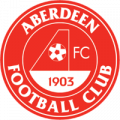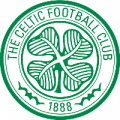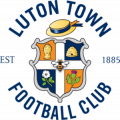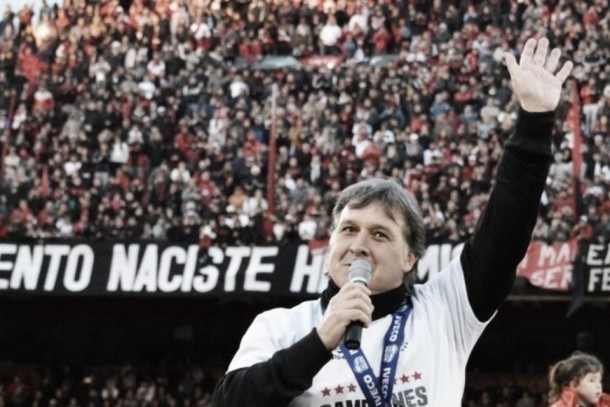“Tata must continue the system Cruyff introduced, improved by Rijkaard, perfected by Guardiola and continued by Vilanova.” – Joan Laporta
Continuity.
When Tito Vilanova was announced as the Barcelona manager 12 months ago, millions of Barcelona fans breathed a sigh of relief. They were content with the way things were going at the Camp Nou, and wanted it to continue. Don’t fix what isn’t broken.
It was the primary reason why so many of them urged Guardiola to stay on to begin with. With his right-hand man, Tito Vilanova, being chosen as his successor, more of the same was guaranteed.
“Tito knows very well how things are here and we will continue in the same direction,” said Andres Iniesta about Vilanova’s appointment. The words continuity and stability were used by every pundit when it came to discussing the smooth passing of the baton from Guardiola to Vilanova.
It can be argued that nearly everyone failed to see what Pep Guardiola saw: the style of playing that had brought Barcelona so much success was next to impossible to sustain.
“The great virtue of this team is that they run, run, run!” – Pep Guardiola on FC Barcelona in 2009.
This isn’t a case of a manager seeing a squad declining and jumping ship before it’s too late. This was a man who knew that after four years, he could no longer motivate his players to maintain the level of intensity needed to execute his instructions in a way that would yield success. The squad simply did not have the resources. Age, lack of hunger and exhaustion were taking their toll. In order to succeed, they would have to adapt.
The style of play that has become associated with Barcelona is the way they keep the ball. Their possession statistics have been climbing season after season since 2008. Tiki-taka, as it has come to be known, was only part of that equation. Their pressurizing of opponents when they were out of possession was what allowed their passing game to flourish.
The treble season of 2008/09 came to be not because of Barcelona’s defensive players, but because of the way the offensive ones defended. Not only would they press the player in possession, they would snap at the heels of all of his passing outlets as well. This would generally result in Barcelona rapidly regaining possession, and even if the opposition did manage to send the ball up field, it was usually a desperate hack that rarely reached its intended target.
Barcelona’s passing wore their opponents down physically, but their pressing wore them down mentally. The opposition knew that whatever they did with the ball when they had it needed to be worthwhile. There would be no risky passes, no fancy tricks, nothing that would unnecessarily concede possession. To do so would mean risking the possibility of not seeing the ball again for the next half an hour.
Due to the paranoia of losing the ball, experienced players frequently found themselves committing mistakes which athletes of that caliber are simply not expected to make. Think back to Cesc Fabregas’ (then an Arsenal player) needless backheel on the edge of his own penalty box which gifted Barcelona the go ahead goal in the Camp Nou back in 2011. If you could pick one game that exemplified the way Barcelona’s pressing was at its very best, that would be the one.
Barcelona’s lack of pressing nowadays has resulted in them falling victim to a fate they used to inflict on their opposition. They are often called boring, which is an exaggeration, but it must be highlighted that they are certainly more careful with the ball. The confidence that they can easily win the ball back has disappeared.
Because of this, Xavi Hernandez passes laterally to Dani Alves instead of attempting a risky through ball to Lionel Messi. Because of this, Andres Iniesta stops his dance through the opposition’s defense and hits the ball back to midfield. It is not that Barcelona have miraculously lost their ability to produce magic when attacking, but when you are unsure if your fanciness may result in a counter-attacking goal, do you still take the risk?
If that pressure is so fundamental, why stop?
The answer to that is the same reason that scientists are trying to come up with alternative sources of energy: Everything runs out eventually.
Every season, Barcelona suffer a dip in form somewhere around February, only to come out swinging once more in April. In the past 3 seasons, they never rose to their pre-February form again. Barcelona spent the two weeks leading up to their awe-inspiring victory over Manchester United at Wembley recharging, having clinched the league title early. They had the energy to produce such a performance.
When Pep Guardiola brought Thiago Alcântara into an already stacked Bayern Munich midfield, you could see that he had learned from his time at Barcelona. No team that lacks depth can ever hope to sustain that level of pressing for more than a few seasons.
Continuity?
As such, Gerardo ‘Tata’ Martino’s most important task when he takes up his position as first team coach of Barcelona will be implementing a pressing system that is sustainable, a way to regain possession without running the risk of a crash midway through the season. Solar energy rather than fuel, if you will.
Due to the players Barcelona have in defense (or more pointedly, don’t have), a move away from a possession-based system is unlikely to end well.
Any success will involve getting the most out of a certain Argentine.
There was a moment in a game against Atlético Madrid 2 years ago, which Lionel Messi received endless praise for. Comfortably up 2-0, Barcelona were cruising when Sergio Agüero began a run down the touchline towards the home side’s goal. A little man in red and blue kept him company, nicked the ball off him, and made his way back up the pitch. When Lionel Messi decides that he’s going to play like he’s the best player in the world, both offensively and defensively, there’s little you can do to stop him.
His goal tally, though, has been inversely proportional to Barcelona’s success. In the year of the treble, he scored just (‘just’) 38 times. When Barcelona won both the Champions League and La Liga, he scored 53 goals. In his highest scoring season, 2011/12, where he scored 73 goals, Barcelona managed to win only the Copa Del Rey, frequently touted as a sort of consolation prize.
In a bizzare way, Lionel Messi needs to do more by doing less. At the moment, it is a rare sight to see him hunt the ball down like he used to. Conserving his energy in order to be able to finish better helps him, but it helps his opponents as well. They realize that with Messi not tracking back in defense, his teammates have to do more. They understand that if they shut down Messi, they eliminate Barcelona’s only method of scoring. The Argentine is a very, very special player, but Lionel Messi cannot carry Barcelona on his own.
Enter Neymar. It remains to be seen whether or not the Brazilian is compatible with Lionel Messi. Many have raised the potential issue of the two players being incapable of sharing the spotlight. While that may very well be an issue, what cannot be disputed is that opposing defenders cannot focus solely on Lionel Messi next season. Where in the past, defenses would quite readily give space to a misfiring Pedro or a past-his-prime Villa, it would be unwise to afford Neymar that same luxury.
FC Barcelona have not magically become a bad team. They still possess some of the world’s finest footballers, and have a youth system that is laden with talent. Tata Martino’s biggest task when he is officially presented as the new first team coach on Friday, will be to implement a system of pressing which is not only effective, but sustainable.
Depth will be necessary. With the sale of Thiago Alcântara, a club that used to be lauded for its abundance of talented attacking midfielders is now looking worryingly depleted in that area of the pitch. With only Sergio Busquets, Andrés Iniesta, Cesc Fàbregas and the aging Xavi Hernández available as creative outlets, Barcelona must look to promote from within should they need fresh ideas, or more importantly fresh legs, during the season. The loan spells of budding B-teamers Gerard Deulofeu and Rafinha Alcântara to Everton and Celta Vigo have been called into question as of late. With the squad so clearly lacking depth, would it not have been wiser to keep the most promising youth teamers within reach?
Should no further signings be made, Martino will have to call upon the likes of Sergi Roberto and Jonathan Dos Santos to run the midfield in the more straightforward matches if players like Xavi and Iniesta are going to last through the season.
In defense, it seems impossible that a central defender will not be brought in. There are rumors swirling that the new manager is pushing for the club to sign Santiago Vergini, who he coached last season at Newell’s Old Boys.
Cycles are an inescapable reality in the world of football. They begin, and they finish. New ones take shape as old ones approach their inevitable end. The cycle of success that came from running ones legs into the ground was never going to last forever.
There is hope yet for this Barcelona team, because should their new coach find a way to rectify the current deficiencies, with the talent they possess, the cycle may be over but the era may not be.









































